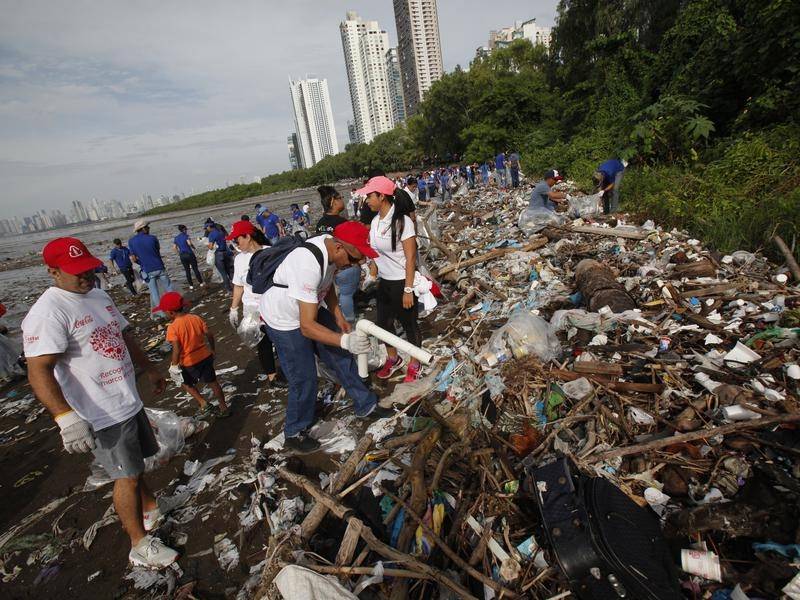Thousands of volunteers have hit the beaches of Panama to highlight the serious environmental problem of ocean pollution and the importance of reducing plastic use.
The clean up has been repeated annually for more than two decades on 70 beaches near the capital Panama City and in the provinces of Darien, Veraguas and Cocle involving locals, environmental groups, public institutions and large companies.
Jenny Echevarria, the director of environmental education for the National Association for the Conservation of Nature (ANCON), said four large rivers flow through the city from north to south carrying all kinds of waste into Panama Bay.
“We’ve found washing machines, refrigerators, tyres, toys, car parts, shoes, glass and mainly plastic bottles. We have a serious problem with plastic in Panama. People don’t understand the harm it causes to toss a plastic bottle on the ground,” she said.
The United Nations estimates that each year eight million tonnes of plastic are dumped into the sea, an average of a truckload of plastic each minute, and that annually one million birds and 1,000 sea turtles die as a result of that pollution.
According to figures compiled by the Panama Mayor’s Office, 19 per cent of the waste from the capital is plastic. Organic waste represents an even larger quantity: 30 per cent.
In January Panama approved a groundbreaking law banning the use of throwaway plastic bags in all commercial establishments. The law will come into effect in January 2019.
The UN calculates that if the situation stays the same by 2050 there will be more plastic than fish in the oceans.
